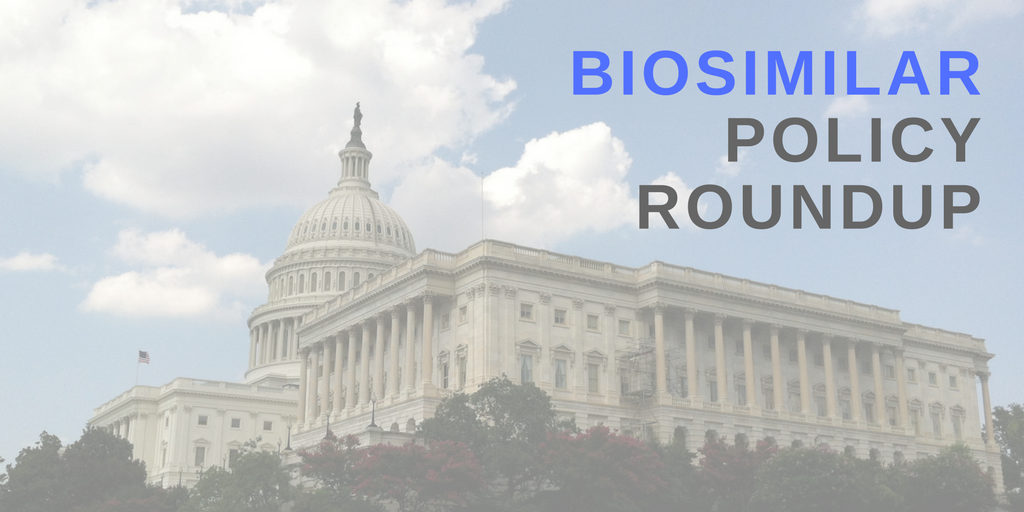- Bone Health
- Immunology
- Hematology
- Respiratory
- Dermatology
- Diabetes
- Gastroenterology
- Neurology
- Oncology
- Ophthalmology
- Rare Disease
- Rheumatology
Biosimilars Policy Roundup: April 2024
April brought 2 FDA approvals, 1 European approval, and several insights into possible policy changes from the Festival of Biologics USA conference.
April brought 2 FDA approvals, 1 European approval, and several insights into possible policy changes from the Festival of Biologics USA conference.

Regulatory Approvals
Shanghai Henlius Biotech's biosimilar Hercessi (trastuzumab-strf), referencing Herceptin (trastuzumab), has received FDA approval for treating HER2-positive breast cancer, marking the company's first US approval and the sixth trastuzumab biosimilar. Accord BioPharma, under Intas Pharmaceuticals, will handle regulatory approval and commercialization in the US and Canada. This approval follows a robust data package showing biosimilarity between Hercessi and Herceptin, addressing a significant need in breast cancer treatment globally, particularly in North America.
Additionally, the FDA approved Alvotech and Teva Pharmaceuticals' biosimilar Selarsdi (ustekinumab-aekn) referencing Stelara (ustekinumab), making it the second approval for an ustekinumab biosimilar and Alvotech's second overall approval in the US. Selarsdi is used to treat various inflammatory conditions, including plaque psoriasis, psoriatic arthritis, Crohn disease, and ulcerative colitis. Alvotech's success with Selarsdi follows its previous approval of an adalimumab biosimilar (Simlandi) and underscores their commitment to expanding biosimilar access and reducing health care costs.
Overseas, the European Commission granted marketing authorization to Pyzchiva, another ustekinumab biosimilar. It was approved for treatment of psoriatic arthritis, plaque psoriasis, Crohn disease, and ulcerative colitis.
Conference Insights
During the Festival of Biologics USA conference, several speakers presented on how to make the biosimilar industry more sustainable through policy changes. Melody Chang, vice president of pharmacy operations at American Oncology Network (AON), presented on results from a 4-year report showing how AON’s biosimilar strategy had saved the organization over $243 million between 2020 and 2023. Chang discussed the need for policies to take into account payer, patient, and provider factors to ensure adequate biosimilar adoption.
Julie Reed, executive director of the Biosimilars Forum, presented on policy updates that are likely to shape the biosimilar industry in 2024, such as possible pharmacy benefit manager (PBM) reform and the implementation of drug price negotiations under the Inflation Reduction Act (IRA). Reed emphasized the importance of spreading awareness about how these policies are impacting access to medications. She also expressed hope that pushback to the IRA will encourage Congressional leaders to make meaningful changes to promote biosimilar uptake.
Magnus Bodin, senior director and head of international access and policy at Biogen, provided warnings for how bad policy can lead to an unsustainable biosimilar market as well as key factors needed to effective strategies to future-proof markets globally. Bodin drew from the experiences of European nations, particularly Poland, where biosimilar uptake is high but biosimilar accessibility is very low. Bodin said that effective policies need to allow for open competition that allow for multiple biosimilars to thrive and offer more transparency in development planning and contract implementation.
Other Policy Insights
A report from the Biosimilars Council looking at IQVIA data found that PBM rebate policies are costing US patients and payers $6 billion by suppressing biosimilar adoption. Furthermore, transitioning all US patients on originator adalimumab to a biosimilar version would have resulted in an estimated 84% decrease in PBM profits, which could also lead to decreased revenue for large specialty pharmacies that frequently have shared corporate ownership with PBMs. The report expressed hope that biosimilars could see more favorable coverage in 2024, with the big 3 US payers expected to make some policy switches.
A systematic review examined the policy landscape associated with increased biosimilar uptake in Europe, finding that tender systems were very common and automatic substitution measures were rarely used. Longer lifespans and low birth rates in Europe have resulted in a large aging population, which will require more effective and affordable drug therapies, such as biosimilars, to managing the disease burden efficiently. The authors emphasized that further research is needed to identify any additional policy measures and instruments that were not included in their analysis.
Newsletter
Where clinical, regulatory, and economic perspectives converge—sign up for Center for Biosimilars® emails to get expert insights on emerging treatment paradigms, biosimilar policy, and real-world outcomes that shape patient care.
